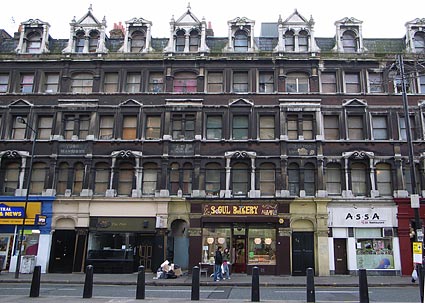- More by Omar Bishara
5% of global oil supply up in smoke and flames as Saudi Arabia oil fields hit with massive missile strike
Everything you need to know about the Saudi Arabia oil strikes
Saudi Arabia’s pipelines, oil installations and tankers have in frequently been attacked over the past two years. The nation has proven to be resilient and robust in ensuring oil distribution is not affected.
However, analysts say what happened in eastern Saudi Arabia in the early hours of Saturday morning is a much larger escalation: a hit to the jugular of the kingdom’s oil industry. A hit that will ripple across the globe.
At 03.31 and 03.42 on Saturday morning, loud explosions erupted at Khurais oilfield and Abqaiq processing facility, both owned by Saudi Arabia’s national Aramco, the country’s state-owned oil company, often described as the kingdom’s crown jewel.
The explosions set off fires that took several hours to douse and appear to have caused significant damage. Saudi oil ministry sources said the production had been disrupted by about 5m barrels a day – nearly half the kingdom’s estimated output of 9.7m barrels and 5% of global production.
Who was responsible?
Yemen’s Houthis, the same group that hit Saudi’s eastern city of Dammam earlier this year have claimed responsibility.
Trump however, claims despite evidence, admission form Yemen, and international observers’ statements, Trump claims Iran is directly responsible. The US claims to have evidence that the missiles came from Iran. A claim no other nation supports.
The Houthis recently acquired much more powerful drone technology that has given them the power to strike targets up to 1,500km away, according to the UN. Abqaiq is within about 1,000km of Houthi-held territory. In the past months, there have been unconfirmed reports of attacks by Houthi drones on civilian airports in Saudi Arabia, Abu Dhabi and Dubai.
Saturday’s strikes would represent a marked increase in sophistication compared to those earlier attacks. Western and Saudi governments believe Iran has been assisting the Houthis to acquire and use the advanced drones – a charge both Tehran and the Yemeni rebels deny.
Why is this attack such a big deal?
Abqaiq is the world’s largest oil processing facility, where about two-thirds of the total Saudi supply is refined and cleaned of impurities such as sulphur and sand. “This is the heart of Saudi Arabia’s oil infrastructure,” said Homayoun Falakshahi, an oil and gas equity analyst at Kpler, a Paris-based energy data firm.
A facility of such importance was supposed to be insulated from the wider instability of the Middle East. “Because of its importance it is very well protected, under extremely high security measures,” Falakshahi said.
The attack has directly disrupted between 5% and 7% of the total global oil supply.
The fact that it can be severely disrupted is a sign that the world’s energy infrastructure is more vulnerable than previously believed, and considered a legitimate target.
How are the regional actors aligned?
The Houthis are regarded as part of a network of militias in the Middle East who are sponsored or assisted in some way by Tehran, part of a broader fight to dominate the Middle East between Iran and Saudi Arabia that dates back to the Iranian revolution of 1979. The pair do not directly clash; the battle is playing out through proxy actors in Syria, Lebanon and Yemen, among other countries.
Saudi Arabia is backed and supported heavily by the US, UK and France.
Turkey and Russia often try to stem the flow of damage caused by rebel groups trained by the US-Saudi alliance groups, particularly in Syria, Iraq and Turkey.
Iran continues to deny that it materially assists the Houthis but has become more openly supportive this year, inviting a Houthi spokesman to Tehran where he was praised as a “holy warrior” by the country’s supreme leader, Ayatollah Ali Khamenei.
What has been the impact on oil prices?
News of the attacks jolted the financial markets, sending the oil price soaring. The price of a barrel of Brent crude surged by 20% early on Monday to nearly $72 from $60 per barrel. That’s the biggest move since the contract was created in the 1980s.
It then dropped back to about $66 per barrel after Donald Trump pledged to release some of America’s oil reserves, to make up the shortfall from Saudi Arabia. That’s a two-month high, up 10% compared with Friday night. Trump’s wild assertions aimed at provoking war with Iran and move to profit from the move has sparked speculation that the US nay have supplied Yemen with the missiles used in the strike.
Economists believe the oil price could rise higher if Aramco cannot bring supplies back online quickly, or if there is further military action in the Gulf, something Trump appears keen on forcing.
Higher oil prices can drag on global growth. It pushes up transport costs and the prices of petroleum-based products. This fuels inflation, leaving consumers with less disposable income. The UK is already in a recession with the US, Italy and Germany entering depressions and looking recessions down the barrel. The economic slow down in China has further sparked concerns of a world wide financial collapse.
What could happen next?
Trump says his government is “locked and loaded” and ready to respond to whoever carried out Saturday’s attack, hinting strongly that the US may see it as justification for a military strike on Iran. Trump added that he “did not want a war, but was ready for one”.
Yet any such attack would carry a significant risk of escalation – a chance that Trump has previously been unwilling to take. A risk that the US army would be unable to control.
In the short term, the strikes appear to have scuttled any momentum towards Trump meeting with the Iranian president, Hassan Rouhani, when the latter arrives in New York next week for the opening of the 74th UN general assembly.
Since you’re here …
… we have a small favour to ask. More people are reading Al-Sahawat Times than ever but advertising revenues across the global media industry are falling fast. And unlike many news organisations, we haven’t put up a total paywall. We want to keep our journalism as open as we can. So you can see why we need to ask for your help. Al-Sahawat Times’ independent, investigative journalism takes a lot of time, money and hard work to produce. But we do it because we believe truly ethical media and an unbias perspective really matters.
“I appreciate there not being a paywall: it is more democratic for the media to be available for all and not a commodity to be purchased by a few. I’m happy to make a contribution so others with less means still have access to information.”
If everyone who reads our reporting, who likes it, helps fund it, the future of ethical media and the futures of our staff and their families would be much more secure. For as little as £1, you can support Al-Sahawat Times and it only takes a minute. Thank you.
This story is available on:
Talk to a journalist
Email: NewsDesk@alsahawat.com
Web: alsahawat.com
Follow Al-Sahawat Times
⬆️ Follow on Instagram
⬆️ Follow on Twitter
⬆️ Follow on LinkedIn
⬆️ Follow on Facebook
⬆️ Follow on YouTube
Read it on FLIPBOARD






